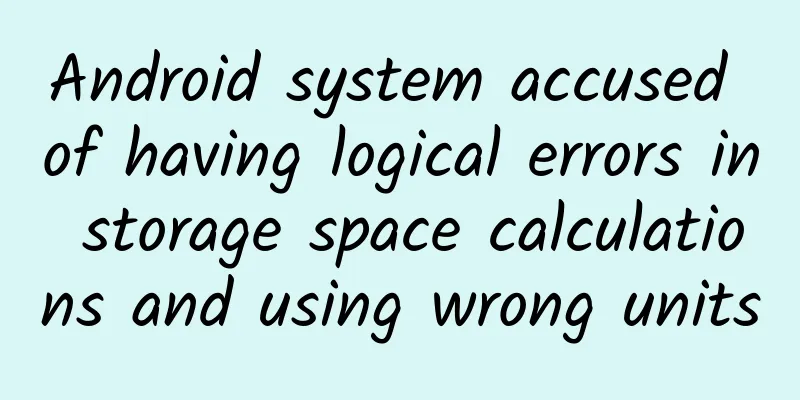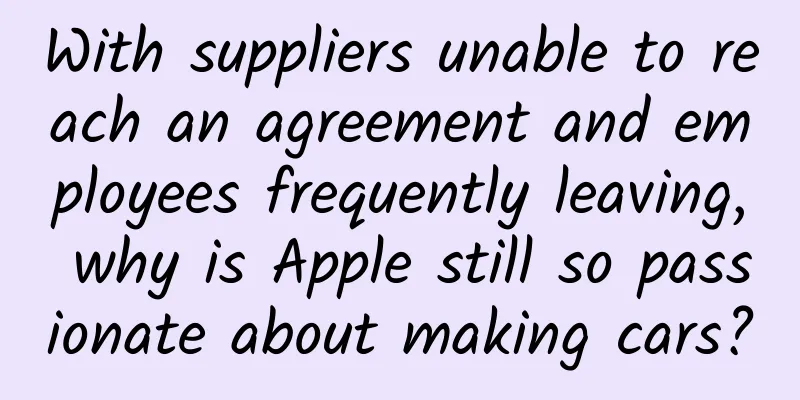Android system accused of having logical errors in storage space calculations and using wrong units

|
In recent years, the storage space of Android phones has increased significantly, and many manufacturers have stopped producing low-capacity models with 64GB, partly because the storage space required by the Android system and applications has also increased. However, the Android system has serious errors in calculating the storage space occupied by system components and uses non-standard units. We usually use the storage usage feature of the Android system to find out the apps and files that take up a lot of space so that we can uninstall or delete them when necessary. However, Android expert Mishaal Rahman found that Google's calculation of the space occupied by Android system components is flawed. Rahman executed a shell command to create a 3GB file in the /data/media/0 storage directory, which is not used to store Android system files. However, the storage space analysis of the phone showed an increase of 3GB of space under the system category, indicating that the system has suddenly become larger. This is because Android counts everything except other categories (including audio, video, pictures, documents, recycle bin, and games) as system space. Android 14 This flawed logic was also used to calculate storage usage. In addition, the File Manager app also showed a similar increase in system component storage usage, likely because it used the same untrustworthy calculation method. Other Android-based UIs also had the same incorrect storage space calculation issue, but Samsung has reportedly fixed the issue in the One UI 6 update . After running the same ADB command as in the previous experiment, Rahman confirmed that the increased space usage was displayed under the Other Files category, not the System category. IT Home noted that Rahman also pointed out another small but important problem, that is, Android uses different units when calculating storage usage and smartphone manufacturers advertise storage capacity. Most people think that mobile phone storage capacity is measured in bytes, which can be expressed as an exponential power of 10. There are 1000³ bytes in a gigabyte (GB), and smartphone manufacturers also advertise storage capacity in gigabytes. Android measures storage space in gigabytes (GiB), which is 1024³ bytes, because it is expressed as an exponential power of 2. Therefore, 1GB is equal to 0.93GiB . Due to this unit difference, smartphone users may think that the Android system installed on their phones takes up more GB than it actually does. Coupled with incorrect storage usage calculations, ordinary Android users may think that the project takes up more storage space than it actually does. Google needs to correct Android's calculation logic for the storage space occupied by system components and quantify all content using the GB unit that consumers are familiar with, which is also the unit used by all smartphone hardware manufacturers. |
>>: iOS 16.6.1 official version is released, it is recommended to upgrade!
Recommend
Can fish in the water hear people talking on the shore?
When looking for a fishing spot, we always recomm...
#千万IP创科普# During the National Day holiday, please keep this highway driving safety guide
During the National Day holiday, free passage wil...
Traffic monitoring of Android application source code
Source code introduction <br /> A small exa...
[Creative Cultivation Program] The amazing Nobel Prize-winning experience originated from the love of mathematics in youth
Author: The Nutcracker Studio The 2020 Nobel Priz...
Caught a cold from the cold? This may be a misunderstanding
The weather is getting cold and many people aroun...
How many of the App Store's super exposure positions have you managed to hold?!
Currently, China has become the second largest iP...
What are server logs? How to read the server log?
Although many webmasters now understand search ra...
Don’t do these things within 30 minutes before doing nucleic acid testing!
#Don't drink hot water within 30 minutes befo...
In-depth information | The most comprehensive guide to bidding OCPC advertising is online
Bidding OCPC is based on the long-term accumulati...
How do enterprises conduct new media operations? These 4 points are very important!
How do enterprises conduct new media operations? ...
How much does it cost to be an agent for Wuwei Ticketing Mini Program?
How much does it cost to be an agent for a ticket...
Colds and allergies come after the Spring Equinox! You need a correct protection "secret"
After the spring equinox, the temperature gradual...
It's a big hit! Hundreds of thousands of people watch this video every day at the subway station here...
In the past two days, Fuzhou residents Have you n...
A table to solve the eating problem of "high blood sugar patients"
At the beginning, please do two multiple-choice q...
[Astrology and the True Self] A must-have tool for astrology beginners and practicing astrologers, the most solid and detailed astrology guide
[Astrology and the True Self] A must-have tool fo...









